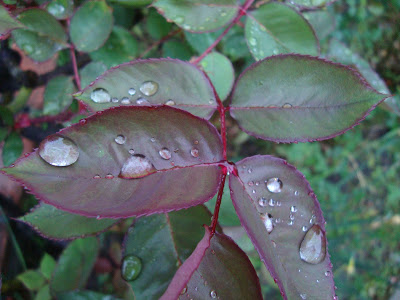The Rainy Bread: Poems from Exile (2015) & More Poems from Exile (2021) by Maja Trochimczyk
|
The Rainy Bread: Poems of Exile by Maja Trochimczyk includes 30 poems and was published in 2015. The new expanded, illustrated edition, entitled The Rainy Bread: More Poems from Exile, includes 60 poems and 14 pages of photographs and portraits. These books document in poetic format some of the forgotten stories of Poles living in the Eastern Borderlands of Kresy, who were killed, deported, imprisoned, or oppressed after the invasion of Poland by the Soviet Union on September 17, 1939. Some of these brief portraits capture the trauma and resilience, ordeals and miraculous survival stories of the author’s immediate family. Their experiences of displacement, hunger, cold, and poverty during the war are typical of Polish civilians. These fictionalized memories are coupled with depictions of survival of other Poles deported to Siberia, the Arctic Circle, or Kazakhstan; who left the Soviet Union with the Second Corps of the Polish Army under the command of General Władysław Anders; were transported to refugee camps in India or Africa; and ended up in Argentina, Canada, Australia or the U.S. The book is a companion to “Slicing the Bread” (2014), with which it shares some poems, including vignettes from the author’s childhood in Warsaw.
BUY IT NOW: The Rainy Bread. Poems from Exile. ISBN 978-1-945938-00-9, Paperback, 64 pages, $10.00 plus shipping BUY IT NOW: The Rainy Bread. More Poems from Exile. ISBN 978-1-945938-47-4 Paperback with color photos, 124 pp. $40.00 plus shipping BUY IT NOW: ISBN 978-1-945938-01-6 EBook, expanded version $8.00 |
More About this Book |
Some of these brief portraits capture the trauma and resilience, ordeals and miraculous survival stories of the author’s immediate family. Her maternal family comes from Baranowicze and the surrounding area near Adam Mickiewicz’s Nowogródek and the mythical lake of Świteź in what is now Belarus. Their experiences of displacement, hunger, cold, and poverty during the war are typical of Polish civilians.
|
Linda Nemec Foster about this book |
Unwavering in its honesty, The Rainy Bread is a thought-provoking look at a brutal chapter in history: the Soviet occupation of Poland during World War II and the deportations and repressions that took place in the country's Easter Borderlands, known as Kresy. Trochimczyk gives a public face to this history but also reveals the private heart of a family that endures despite horrific loss. With simple language and stark imagery, these poems create a powerful testimony and bear witness to the hate that destroys, to the truth that restores, and to the poetic vision that honors our common humanity.
|
Sharon Chmielarz about this book |
Maja Trochimczyk’s poems draw you into a bestial, almost inconceivable history. Using objects—bread, potatoes, trapdoors, high heels—she guides you through an experience with the madness of World War II and its aftermath when a dictator is judged worse or better by how many fewer millions he has slaughtered. This book needed to be written. This is a fascinating, tragic, and instructive time in history which should not me neglected. Trochimczyk doesn’t lecture; you are riveted by the power of her poems; their narratives flow from her hands as if a Babcia were still guiding them. And maybe she was. You will remember the taste of this book.
|






